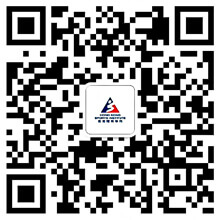News
HKSI Signs Memorandum of Collaboration with Japan Institute of Sports Sciences
Dr Trisha Leahy (2nd from left), Chief Executive of the Hong Kong Sports Institute (HKSI) and Yasutaka Iwagami (2nd from right), Director General of the Japan Institute of Sports Sciences (JISS) and the National Training Center sign the collaboration memorandum witnessed by Tang Kwai-nang (middle), Vice-Chairman of the HKSI; Dr Raymond So (left), Sports Science and Medicine Coordinator of the HKSI and Takahiro Waku (right), Vice Director, Department of Sports Information of the JISS. Read More
Tang Kwai-nang (5th from right), Vice-Chairman of the Hong Kong Sports Institute (HKSI); Dr Trisha Leahy (middle), Chief Executive of HKSI and Yasutaka Iwagami (4th from right), Director General of the Japan Institute of Sports Sciences and the National Training Center, together with representatives of two Institutes and athletes, welcome the signing of the collaboration memorandum which formalises a systematic cooperation between the two places in different areas of high performance training. Read More
Dr Trisha Leahy (2nd from right), Chief Executive of Hong Kong Sports Institute (HKSI) and Dr Raymond So (left), Sports Science and Medicine Coordinator of HKSI lead guests from the Japan Institute of Sports Sciences delegation to tour around the training venues and facilities of the HKSI. Read More
|
Hong Kong Sports Institute (HKSI) today (29 March) signed a memorandum of collaboration with the Japan Institute of Sports Sciences (JISS). The signing formalises a systematic cooperation between the two institutes in different areas of high performance training. Officiating at the memorandum signing were Tang Kwai-nang, Vice-Chairman of the HKSI, Dr Trisha Leahy, Chief Executive of the HKSI, Yasutaka Iwagami, Director General of the JISS and the National Training Center (NTC). Dr Raymond So, Sports Science and Medicine Coordinator of the HKSI and Takahiro Waku, Vice Director, Department of Sports Information of the JISS also present to witness the signing of the collaboration memorandum. Speaking at the ceremony, Tang Kwai-nang said, “Nowadays, the talent of an athlete and the support from the coaches, the Government, schools, parents and the community are not sufficient to nurture a medalist. We are also competing on the successful application of the latest knowledge and technology in sports science and medicine. And this makes the international exchanges a “MUST”. The JISS is a pioneer in the areas of sports science, medicine and information provision in Japan and we can see the achievements of Japanese athletes attained in the 2004 and 2008 Olympic Games as well as in the 2010 Winter Olympics under its support, we are very pleased to have this opportunity to further cooperate and exchange with JISS in various sports aspects.” Yasutaka Iwagami echoed Tang’s views on the high level of competitiveness in elite sports world. He added, “The difference between Olympic medallists and their defeated rivals is very small. So it is very important for each country to develop its own system for winning medals and constantly raise its level of competitiveness. As information and knowledge is spreading quicker and wider, the ability to grasp the trend of elite sports development and find ways to adopt it is one of the determining factors to excel amid the highly competitive world of top sports. Through the cooperation with the HKSI, I hope the level of elite sports, both in Hong Kong and Japan, will rise much higher.” Dr Trisha Leahy also expressed her appreciation about the cooperation and exchanges with the JISS. Dr Leahy said, “We are extremely honoured to have this great opportunity to collaborate with one of the sports powerhouses in the world. I believe our cooperation will create synergy for both institutes and I am confident this will be a mutually beneficial partnership.” Also speaking at the signing ceremony were rower Chow Kwong-wing and fencer Cheung Siu-lun. They shared with the participants their insight and experience after joining the HKSI Exchange Tour to Japan in January this year. Chow said, “The visit further strengthens my belief that sports science and medicine is playing a significant part in today’s sporting arena. I believe the collaboration with JISS will definitely benefit both side’s athletes. Cheung agreed with Chow and added, “I am particularly impressed by the scale of Japanese fencing team’s application of sports science and medicine in their training and competition. Their significant improvement in world ranking has said it all. I think the HKSI may further exchange with the JISS in this area.” The HKSI will cooperate and exchange with the JISS in three major areas, namely training, sports science and sports information.
|
 ID: hksportsinstitute
ID: hksportsinstitute




